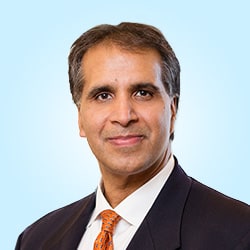Professors Amar and Dorf will discuss the leading cases the Supreme Court decided in its most recent Term, as well as those issues that the Court failed to address. Topics will include: race-based affirmative action in higher education admissions; judicial review of political gerrymandering; conflicts between free speech and anti-discrimination law; validity of administrative student debt forgiveness; state regulation of animal welfare; Indian Child Welfare Act's preference for adoption by tribal members; Title 42 border policy; social media company liability for third-party content; and more. Time permitting, Professors Amar and Dorf will also discuss calls for a binding ethics code for Supreme Court justices.
- Overview of the 2022-23 Supreme Court Term
- How monumentally did this term change the legal landscape?
- Students for Fair Admissions, Inc. v. Harvard
- Affirmative action, the approach of the opinion, constitutional distinctions, and what schools might do now
- Moore v. Harper and Allen v. Milligan
- The Elections Clause, the Voting Rights Act, redistricting plans, the powers of state legislatures, and how the Court dealt with the theories underlying the cases
- 303 Creative LLC v. Elenis
- The First Amendment, creating expressions, discrimination, and how the Court decided the case
- Biden v. Nebraska
- Separation of powers, the Administrative Procedure Act, student loan forgiveness, state standing, and the opinion's approach
- Haaland v. Brackeen
- The Indian Child Welfare Act, tribal member preference in adoption proceedings, federal authority, and the opinion of the Court
- Andy Warhol Foundation v. Goldsmith
- Transformative works under the Copyright Act, silkscreen prints and illustrations based on a photograph by another artist, and the Justices' analysis
- Other Interesting Cases From the Term
This webinar is divided into section summaries, which you can scan for key points and then dive into the sections that interest you the most.
Please note this AI-generated summary provides a general overview of the webinar but may not capture all details, nuances, or the exact words of the speaker. For complete accuracy, please refer to the original webinar recording.
*CLE credit is only available to Justia Connect Pros. Not a Pro? Upgrade today>>
Status: Approved
Credits: 1.00 General
Earn Credit Until: July 18, 2025
Status: Approved
Credits: 1.00 General
Difficulty: All Levels
Earn Credit Until: December 31, 2025
Status: Approved
Credits: 1.00 General
Earn Credit Until: February 28, 2026
Status: Approved
Credits: 1.00 General
Earn Credit Until: January 31, 2026
This presentation is approved for one hour of General CLE credit in California, South Carolina (all levels), and North Carolina. This course has been approved for Minimum Continuing Legal Education credit by the State Bar of Texas Committee on MCLE in the amount of 1.00 credit hours.
This presentation is approved for one hour of General CLE credit in California from 2025-07-19 to 2026-06-30.
Justia only reports attendance in jurisdictions in which a particular Justia CLE Webinar is officially accredited. Lawyers may need to self-submit their certificates for CLE credit in jurisdictions not listed above.
Note that CLE credit, including partial credit, cannot be earned outside of the relevant accreditation period. To earn credit for a course, a lawyer must watch the entire course within the relevant accreditation period. Lawyers who have viewed a presentation multiple times may not be able to claim credit in their jurisdiction more than once. Justia reserves the right, at its discretion, to grant an attendee partial or no credit, in accordance with viewing duration and other methods of verifying course completion.
At this time, Justia only offers CLE courses officially accredited in certain states. Lawyers may generate a generic attendance certificate to self-submit credit in their own jurisdiction, but Justia does not guarantee that lawyers will receive their desired CLE credit through the self-submission or reciprocity process.

UC Davis School of Law
Vikram Amar is a Distinguished Professor of Law at UC Davis, and was previously the dean and the Iwan Foundation Professor of Law at the University of Illinois, Urbana-Champaign College of Law from 2015-2023. Amar has also taught law at Berkeley School of Law, Hastings College of Law and UCLA School of Law. Amar is one of the most eminent and frequently cited authorities in constitutional law, federal courts, and civil procedure. He has written several books and more than 60 articles in leading law reviews. He is a co-author (along with Akhil Reed Amar) of the upcoming revised multi-volume Treatise on Constitutional Law (West Publishing Co.) pioneered by Ron Rotunda and John Nowak. Read More ›

Cornell Law School
Michael C. Dorf teaches constitutional law, federal courts, and related subjects at Cornell Law School. He has authored or co-authored six books and over one hundred scholarly articles and essays for law journals and peer-reviewed science and social science journals. He also writes a bi-weekly column for Justia’s Verdict and publishes a popular blog, Dorf on Law: www.dorfonlaw.org. Dorf received his undergraduate and law degrees from Harvard. Read More ›
